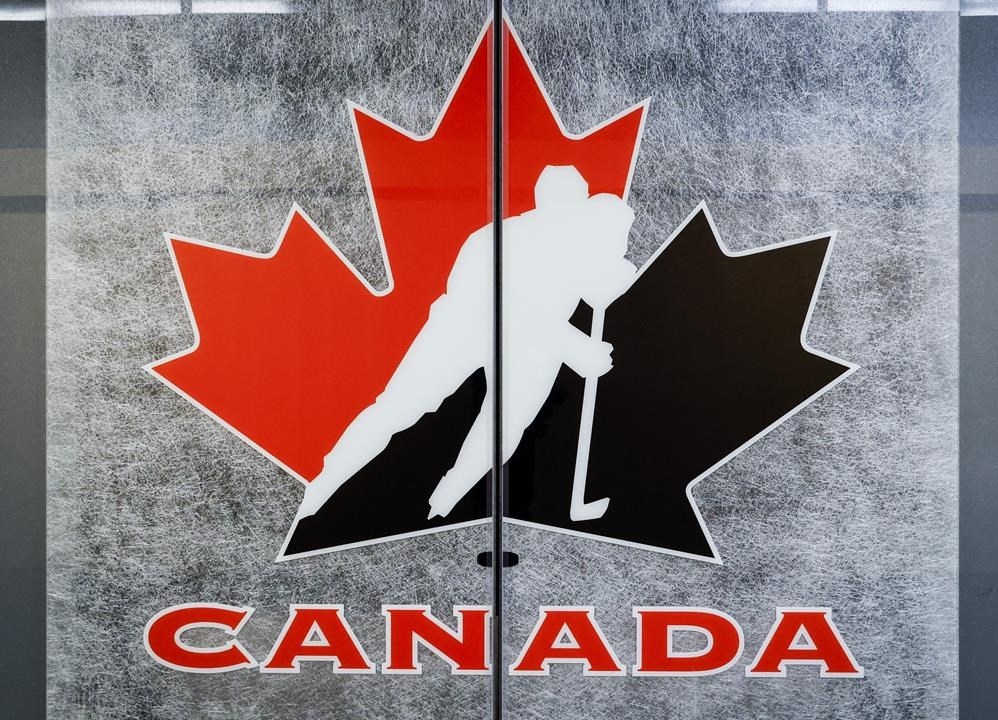Hockey Canada releases report on maltreatment complaints in 2022-23

Hockey Canada’s independent third party (ITP), an arms-length department that receives and investigates complaints of abuse, received 1,872 complaints during its first year of operation, accepting and processing 187 of them.
Hockey Canada’s ITP, run by Ottawa-area lawyers Brian Ward and Jahmiah Ferdinand, accepts “the most severe complaints and redirects the remaining complaints to Hockey Canada members,” which include provincial and territorial federations, Hockey Canada said in a 19-page report on maltreatment in the sport that was published on Thursday.
The report said that 35.3 per cent of complaints to the ITP were for bullying and harassment, 34.1 per cent were for discrimination, and five per cent were for sexual maltreatment.
The ITP agreed to investigate 50.3 per cent of the bullying and harassment complaints and 19.8 per cent of the complaints related to alleged sexual maltreatment.
Families and guardians made 1,057 complaints, while hockey associations were responsible for 598. Coaches and staff made 133 reports, while officials filed 34 complaints. The report did not detail the outcomes of complaints to the ITP.
Unlike other national and provincial sports federations, including Gymnastics Canada, Athletics Canada, and the Ontario Volleyball Association, neither Hockey Canada nor its provincial members make the names of people suspended or banned for misconduct public.
Thursday’s report also detailed complaints made to the Office of the Sport Integrity Commissioner (OSIC), which opened last year and has jurisdiction to look into complaints related to national-team programming.
The OSIC received 25 hockey-related complaints from June 20, 2022, to June 30, 2023, but said it did not have jurisdiction to look at 24 of them. In 19 of those 24 cases, the OSIC did not have the authority to investigate because the respondent was not a member of Hockey Canada. The OSIC has not decided on jurisdiction for one of the 25 complaints it received.
Also documented in Hockey Canada’s report was an increase in the number of penalties referees called during games for discrimination-related offences, which Hockey Canada said included insults related to race, religion, sexual orientation or gender identity, disabilities, and marital or family status.
During the 2022-23 season, officials called 913 such penalties, up from 512 in 2021-22.
Hockey Canada said another 711 complaints were made during the season about alleged discrimination that a referee or other on-ice official did not hear. In 2021-22, there were 415 such complaints.
“In collaboration with its members, Hockey Canada acknowledges there is a need to gain a better understanding of the types of maltreatment present in hockey in order for the hockey community to address maltreatment in tangible and meaningful ways,” the report said.
“An important step in the change process is the collection and publication of national data across the sport, which builds awareness and creates dialogue to help minimize the risk that participants normalize certain behaviours. By continuing to discuss maltreatment, Hockey Canada and its members hope to break down the wall of silence around these unacceptable behaviours.”
The report’s release comes more than three years after Hockey Canada said in response to TSN’s reporting on discrimination in minor hockey that it would develop an incident-tracking system to begin documenting reported incidents of racism, bullying and harassment.
Of the 711 penalties for verbal discrimination documented in Thursday’s report, which contravenes Hockey Canada’s Rule 11.4, 195 were called in Hockey Alberta, followed by 165 in the Ontario Hockey Federation, and 72 in Hockey Saskatchewan.
“Of the Rule 11.4 penalties called, a minimal number were levied against girls/women,” the report said. “Further, the vast majority of Rule 11.4 penalties called were against players and a low percentage were called against coaches. Uniformly across all divisions, sexual orientation/gender identity discriminatory slurs were the most common reasons for Rule 11.4 penalties called.”